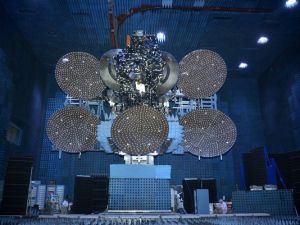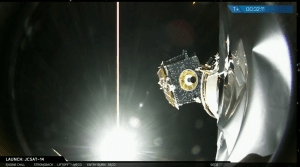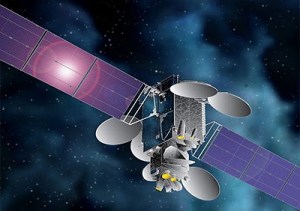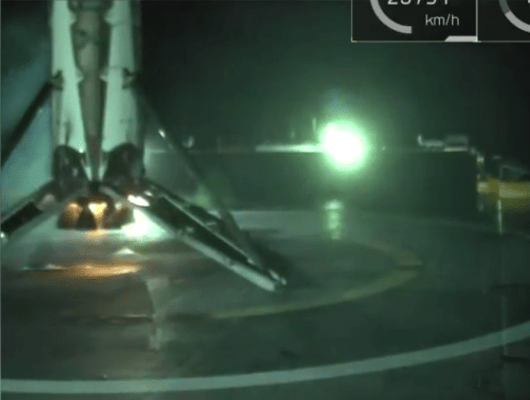SpaceX successfully launched the Japanese communications satellite, JCSAT-14 on their Falcon 9 rocket at 1:22am EST today from Cape Canaveral, Florida. After the launch, the company soft-landed the first stage of the rocket on their drone ship “Of Course I Still Love You” – the second time this has ever been done.
On April 8th, SpaceX made their first rocket recovery on that same drone ship. Tonight’s landing, however, was even more impressive. The odds of a successful soft-landing were slim due to the mission requirements for this particular launch.
JCSAT-14, which is designed to last 15 years, needed to be placed into geosynchronous orbit at an altitude of 22,000 miles. This is much higher than SpaceX’s last launch when they successfully recovered their rocket on a drone ship after sending space station supplies to low earth orbit (LEO) at around 250 miles.

JCSAT-14 / Image courtesy of Space Systems Loral
The SpaceX co-hosts noted that because today’s rocket needed to travel to such a high altitude, the first stage was coming in much hotter, at around 2 km/s, than standard LEO launches where the rocket will return at about 1 km/s.

Successful JCSAT-14 deployment from Falcon 9 / Screenshot from SpaceX live feed
JCSAT-14 is a satellite from the SKY Perfect JSAT Group, the largest satellite operator in Asia. Once in orbit, the satellite will be used to provide television and communication services.

Illustration of JCSAT-14 / Image courtesy Space Systems Loral
Tonight’s launch was the fourth successful flight for SpaceX so far this year. To date, SpaceX has completed two successful rocket recoveries on a drone ship and one rocket recovery on a landing pad on stable ground.
The next important step, of course, is reusing a recovered rocket, which Musk has stated they hope to do in the next three or four months.
